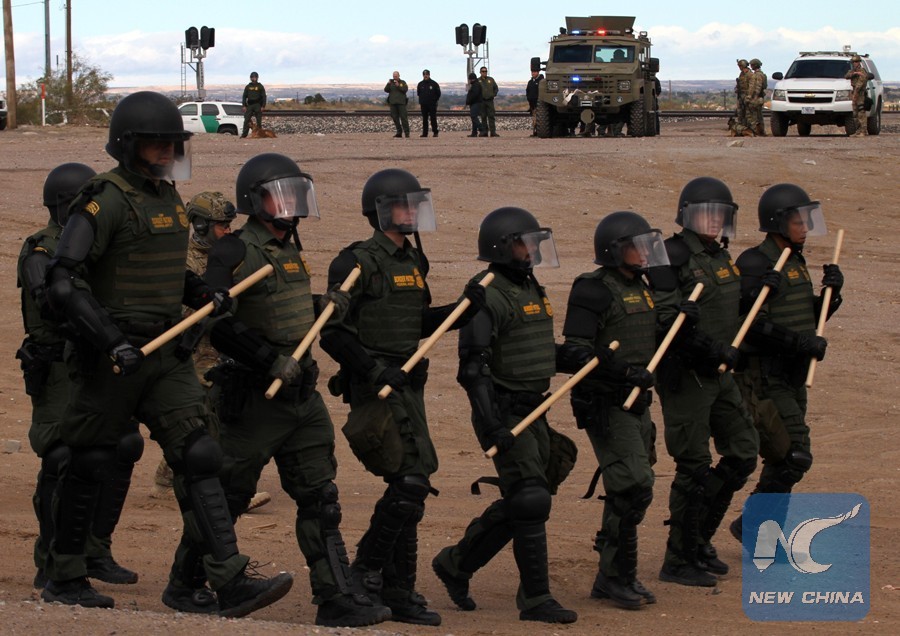
Members of the U.S. border patrol take part in a drill in Sundland Park, United States, on November 30, 2018, as seen from Tijuana, in the Mexico-U.S. border. (Xinhua/AFP)
WASHINGTON, Nov. 30 (Xinhua) -- The Pentagon is expected soon to extend the deployment of thousands of active-duty troops stationed along the U.S. southern border with Mexico through the end of January following the incoming caravans of Central American migrants, according to NPR, citing defense officials.
The deployment, announced late October to assist U.S. border law enforcement in the wake of incoming caravans of Central American migrants, had been slated to end on Dec. 15.
Besides, U.S. Defense Secretary James Mattis is likely to reduce the force's size to around 4,000 troops, from the current number of about 5,900, NPR reported Friday.
The official announcement is expected to be made this weekend.
The active-duty military personnel are meant to help strengthen the security of the U.S. southern border but they are allowed to provide only engineering, logistic and medical support.
Caravans of migrants, many of whom say they were fleeing from poverty and violence in Honduras, Guatemala, and El Salvador and want to claim asylum in the United States, were traveling through Central America towards the U.S.-Mexico border for weeks.
Thousands of those migrants, including women and children, have arrived in Mexican border city of Tijuana. A handful of them started a hunger strike this week to pressure U.S. authorities to process their claims.
U.S. President Donald Trump urged Mexico earlier this week to send those Central American migrants back to their home countries, as his administration is trying to deny claims by asylum seekers who enter the United States between ports of entry, a move temporarily blocked by a federal judge.
In addition to the active-duty personnel, the Trump administration has sent over 2,000 National Guard troops to the border.
The troop deployment has been criticized as a political stunt. House Democrats have threatened to investigate the deployment when the new Congress convenes in early January.

